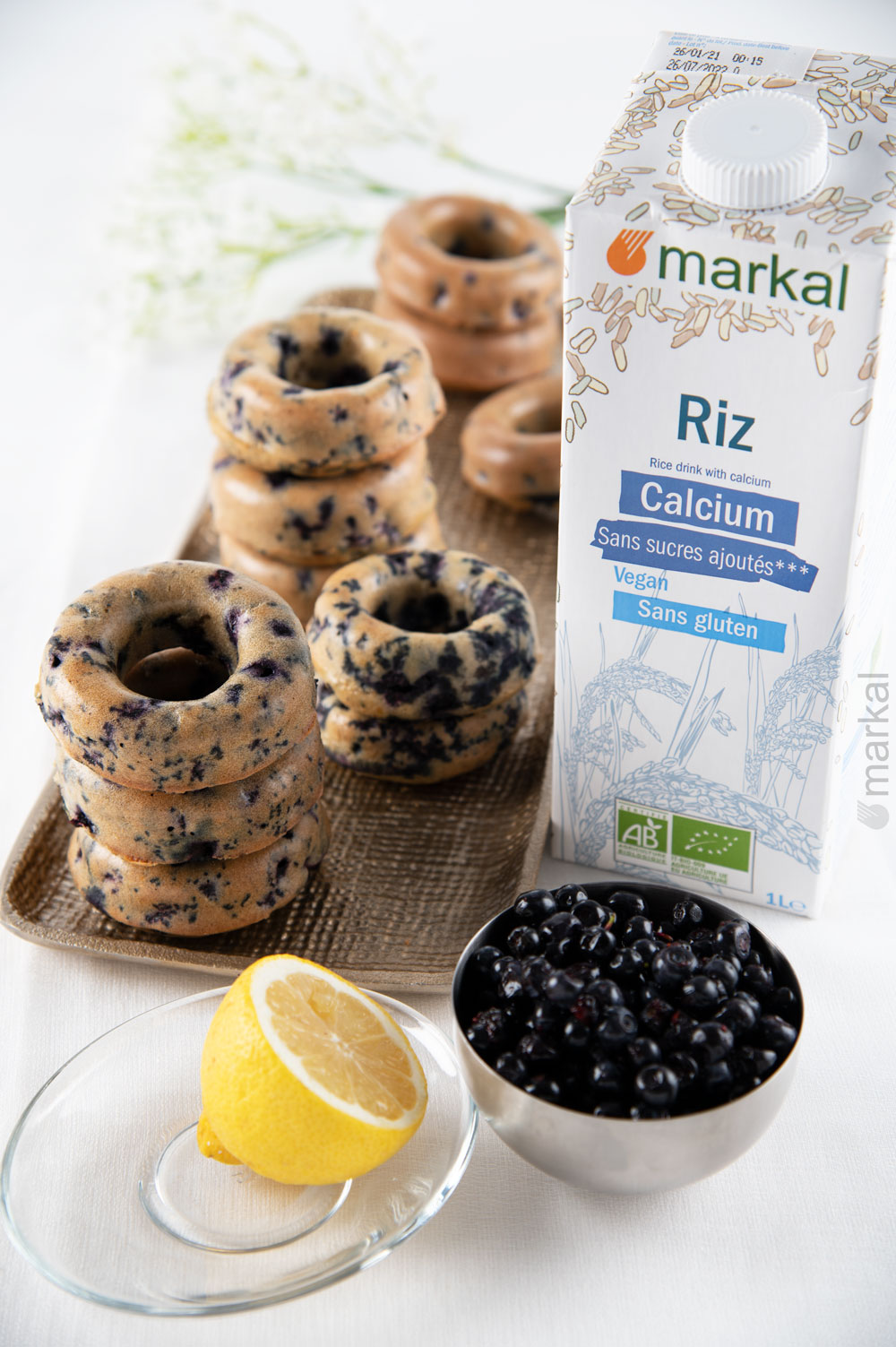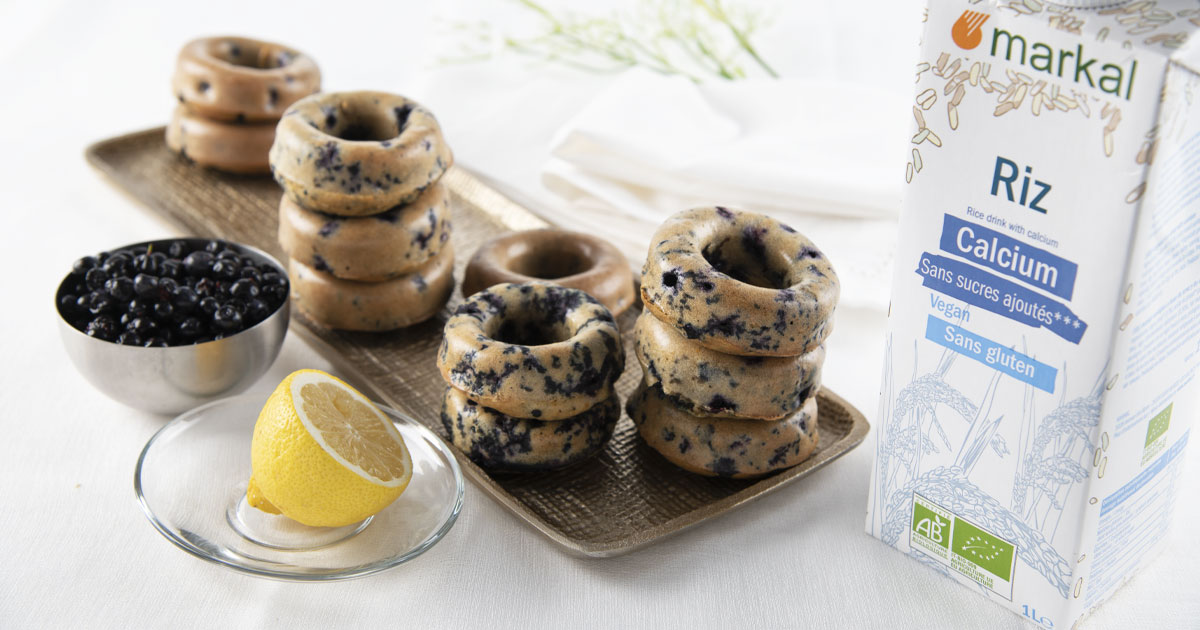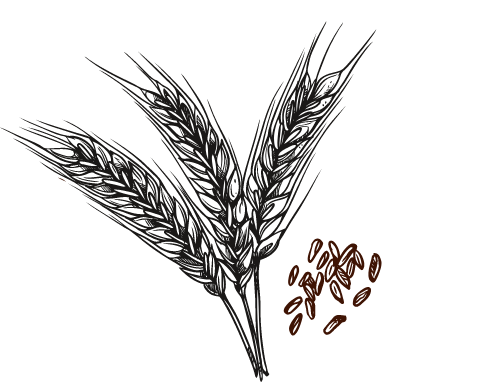Soy or oat drink, almond or rice milk? Now essential, vegetable drinks have won their place on our tables… and not just at breakfast. An alternative to milk that comes with many benefits, to be chosen with care to get the most benefit!
What is a plant drink ?
A vegetable drink is a drink made from plant ingredients, as opposed to milk, which is an animal origin drink. While this is made from dairy animals such as cows, goats and sheep, a vegetable drink is produced from seeds or oilseeds crushed with a liquid, most often water : soy, almond, hazelnut, coconut or cashew, oats, rice, spelt, millet, buckwheat or chestnut ...
The aim ? Offer an alternative to those who have to or wish to avoid milk. First adopted by vegans and lactose intolerant, these plant-based alternatives are fast becoming a must in every shopping cart, regardless of the diet chosen.
Can a plant-based beverages replace milk ?
Technically, yes. But nutritionally, no! Plant-based drinks can substitute for milk in the diet for those who want to avoid or limit it. With a similar texture and appearance, they can replace it in most of its common uses, from the morning bowl to the cake recipe.
From a nutritional standpoint, on the other hand, milk and plant-based drinks do not provide the same nutrients. Some drinks are also enriched with proteins, vitamins or minerals, especially calcium, in order to be closer to milk. Whatever happens, vegetable drinks are not a substitute for infant or breast milk and are strongly discouraged for infants¹.

No plant-based milk!
Confusion reigned for a long time between milk and vegetable drinks, falsely known as "vegetable milks". This designation is now commercially banned following a decision of the Court of Justice of the European Union in 2017 : only coconut milk and almond milk remain, any other recipe being marketed as a vegetable drink, not milk.
The benefits of plant-based beverages
Depending on individual tastes and diet, plant-based drinks can be used as a replacement for or as a supplement to milk in food, as part of a balanced diet.
- Plant-based drinks are lactose-free, and that’s their best-selling point. Lactose is the natural sugar in milk, and it can be difficult for adults to digest because they don't make enough lactase, the enzyme that helps digest it. Besides cases of severe intolerance, it is implicated in many digestive disorders such as pain, diarrhea and bloating. Vegetable drinks do not contain milk, therefore no lactose, and are therefore more digestible than milk.
- They also do not contain saturated animal fats, to be limited for a balanced diet. Please note, milk is not, however, considered as a product to be reduced in the food recommendations of Public Health France², its saturated fatty acid content being much lower than that of meat, for example… but it should not be consumed in excess either: two dairy products per day are recommended, including milk, yogurts, cheese and fromage blanc. Plant-based drinks offer an alternative to avoid overconsumption.
- Organic plant-based drinks do not contain hormones or growth factors present in milk, intended to facilitate animal growth. At this time, there is no evidence of potential adverse effects on human health from excessive consumption. However, some prefer to do without.
- They contain vegetable proteins, in varying amounts. Their consumption makes it possible to increase the proportion of plants as part of an omnivorous diet, to vary the type of protein consumed for vegetarians, and to supplement protein intake for vegans.
- Plant-based drinks do not have more calories than milk. It all depends on the ingredients used, but the calorie content is more or less equivalent between a glass of milk and a glass of vegetable drink. Some may even be lighter.
- They allow you to vary the flavors! While the beverage looks like milk, it doesn't taste like it, as plant-based drinks offer a wide range of flavors depending on the ingredients. Each has its own specificity, and can be used plain or in sweet and savory recipes.
Plant-based beverages, without moderation?
No ! Any food eaten in excess can have negative health consequences. Plant-based drinks are no exception: they offer a practical, tasty and balanced alternative, as long as they are of quality and consumed without excess. They cannot and should not be a substitute for water, for example.
How to choose the right vegetable drink?
When it comes to vegetable drinks, the most important choice is quality. In any case, prefer slightly processed recipes, composition as short as possible.
1 / Beware of sugar
Some plant-based drinks contain added sugars, sometimes in quantity. The secret ? Watch the label and choose drinks without added sugars, quite simply.
2 / Make way for organic
Industrial vegetable drinks can have a composition as complex as it is controversial, including many additives. The use of organic plant-based drinks can exclude almost all of them!
3 / The good taste
The only way to choose your favorite plant-based drink is to test to compare, as there are both plain and flavored versions. But again, promote quality to find the natural flavors of the ingredients! Among the most common, you will find :
- Soy drink, gluten-free, considered the richest in vegetable proteins and neutral in taste;
- Almond drink, gluten-free, low in fat, digestible, well supplied in vitamins and delicately scented;
- Oat drink, soft and smooth, naturally sweet and also well supplied with nutrients, but which contains gluten;
- Rice drink, gluten-free, watery, with a slightly sweet flavor, easy to digest;
- Coconut milk, used more in cooking than in drink, more delicious… and richer in calories.
The good idea
At Markal, the new plant-based almond drink contains just three ingredients for a delicate almond flavor. Water, organic toasted almond paste and a few drops of natural almond flavor, nothing more. Minimum composition, maximum pleasure!
¹ https://www.anses.fr/fr/content/quels-laits-pour-l%E2%80%99alimentation-des-moins-d%E2%80%99un
² https://www.mangerbouger.fr/l-essentiel/les-recommandations-sur-l-alimentation-l-activite-physique-et-la-sedentarite









